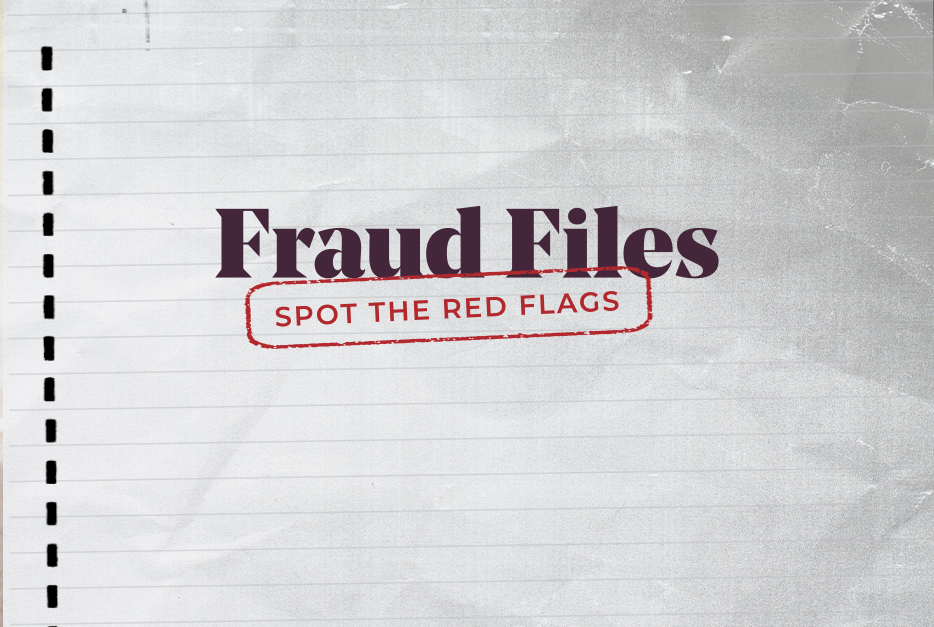Fraud Files: Amazon bait and switch
What happened
Sylvia loves the ease of online shopping and understands the importance of looking into the legitimacy of companies she doesn’t recognize before placing an order. But when she received call from a woman claiming to be from the Amazon Fraud Department, she quickly found herself in a dangerous game of bait and switch.
The representative who called Sylvia had questions about some odd activity she saw on her Amazon account. Sylvia had not made any recent purchases and the caller was vague on the details of why she was calling, but the representative suggested Sylvia’s account had likely been hacked. She told Sylvia they would open a police investigation into her Amazon account and someone from the RCMP would contact her in the next few days. Three days later, Syliva received a call from a man claiming to be Officer Petra from the local RCMP detachment. He told Sylvia as part of the investigation request from Amazon, he had reviewed her bank account and discovered she recently received $65,000 from a known drug dealer. Despite insisting that wasn’t possible, Officer Petra told Sylvia she would have to pay back that money and threatened to go after her family and friends if she didn’t.
Sylvia was terrified and couldn’t understand how this happened, but she tried to remain calm as she explained to Officer Petra that she only had access to $5,000 in her account at SCU and couldn’t possibly pay back the full $65,000. Officer Petra instructed Sylvia to go to SCU and withdraw all her money. He advised her to keep this a secret and, if anyone asked, to say she needed the money for home renovations. He then insisted Sylvia keep him on the phone while she went to SCU so he could hear everything she said and to ensure she didn’t mess up. He told her this was for her own protection
The scam
Scams are becoming increasingly more sophisticated, making them harder to recognize. Here are some of the red flags in Sylvia’s story to watch out for:
Spot the red flags
1. Vagueness: Often these scams start with very little details. Both the Amazon representative and the police officer who called Sylvia were vague on the details of why they were calling and what they were claiming happened on Sylvia’s account. They relied on Sylvia to answer their questions to inadvertently provide them with information they could use to scare her into giving them money.
2. Urgency: Scammers often use a sense of urgency, so you don’t have time to consider if this is potentially fraud. Officer Petra told Sylvia to withdraw all her money immediately and stayed on the phone with her while she went to SCU to ensure she remained panicked and couldn’t think about what was happening.
3. Threats: A common tactic scammers use is to threaten to hurt your family and friends or that you’ll be sent to jail if you don’t do exactly what they say. If Sylvia’s caller was really a police officer, he wouldn’t have threatened her but rather offered to help her.
4. Secret: Scammers will come up with many excuses to make people give them money, and most often they will insist on keeping it a secret to avoid raising suspicion until they are long gone with your money. The man impersonating an RCMP officer told Sylvia this was an on-going investigation and forced her to lie to the teller about why she needed to withdraw the funds. If a stranger is asking you for money and telling you to keep it secret, confide in someone you trust and ask them for help.
5. Stay on the phone: Asking Syliva to remain on the phone was a way to ensure she didn’t say anything that might make the teller suspicious. It was also a way for the caller to keep Syliva in that state of panic so she wouldn’t wonder if what he was claiming was true.
What happens on our side
The teller was concerned because Sylvia seemed nervous when she requested to withdraw all her money, so she shared her concerns with her manager, who agreed it seemed suspicious. The manager looked outside and noticed Sylvia was talking on the phone in the parking lot. She went out to the parking lot to ask Sylvia if she could come back inside to fill out a form, claiming the teller had forgotten. Sylvia was acting nervous, and the manager wanted to make sure she was safe. Sylvia motioned to her phone and whispered that she was talking to the RCMP but that she was supposed to keep it a secret. At that point, the manager told Sylvia to hang up the call so she could bring her into her office and explain that this was fraud.
Key takeaway:
There are many different scenarios that might be used by someone trying to steal your money, but common threads to watch out for are threats, urgency, and a request to keep things a secret. When you receive a call about something that doesn’t make sense, chances are good that it’s a scam. Ask if you can call them back and verify that the phone number they provided is actually from the organization they say they are calling from. And, in a case like Sylvia’s, you can log into your Amazon account to see if there is any recent activity that matches what the caller is asking about.
Sometimes, we can spot and stop a fraud scam before a member loses money. Unfortunately, this is not always the case. Preventing fraud is an important responsibility we all share. SCU strongly recommends that members remain vigilant and learn to protect themselves from falling victim to fraud.
Visit our Fraud Prevention Centre to learn more about fraud, how to spot it, and if in doubt, reach out to SCU for advice at 1.800.728.6440.
You can also check out the Canadian Anti-Fraud Centre for information on known scams.



